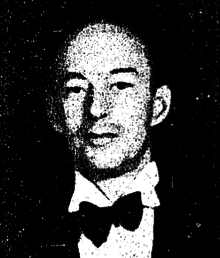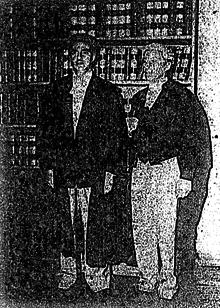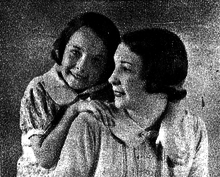John McNeill (lawyer)

John McNeil QC served as Crown Advocate of the British Supreme Court for China from 1940 to 1942. He also served as the Chairman of the Hong Kong Bar Association on three occasions in the 1950s.
Early life
McNeill was born on 18 May 1899. He was the son of Duncan McNeill, a barrister practising in Shanghai. The McNeills came from the ancient Highland family, the McNeills of Colonsay. One of their forebears Lord Colonsay had been Lord Advocate of Scotland[1]

John McNeill was educated at Charterhouse School and Trinity College, Oxford where he studied Classics and took an honours degree in Litterae Humaniores (Greats). He also gained a half blue for fencing. During World War I he signed up to join the army despite not having finished his studies and in December 1917 he joined the Guards Brigade. In the spring of 1918 he obtained a commission in the Royal Highlanders, Black Watch, and served in France and Germany with the first Battalion.[2] After demobilisation he returned to Oxford and in 1923 was called to the bar of the Inner Temple and then practiced as a barrister in London.[3]
Legal career
In 1926 McNeill moved to Shanghai to practice before the British Supreme Court for China. He was admitted by judge Peter Grain on the motion of the Crown Advocate, Allan Mossop.[4]
In 1937, he acted as Crown Advocate of the court in the absence of the Crown Advocate, Victor Priestwood. In 1939, Priestwood's appointment as Crown Advocate was terminated. After acting in the position for a few months, McNeil was appointed the Crown Advocate with effect from 1 January 1940.[5]
On December 8, 1941, Japanese troops occupied the court house of the British Supreme Court in Shanghai. McNeill was interned for 5 months before being repatriated to England.[6] HIs appointment as Crown Advocate was formally terminated in 1942.[7]
After the war, he went to the bar in Hong Kong. He became a King's Counsel (K.C.) in Hong Kong in 1950 (and a Queen’s Counsel (Q.C.) when Queen Elizabeth II became Queen in 1952). He was Chairman of the Hong Kong Bar Association in 1952, 1955-1956 and 1958.[8]
Daughter's marriage

McNeill's only daughter, Jane, became a model and in 1953 at the age of 22, married the Earl of Dalkeith who was later to become the Duke of Buccleuch, making her the Duchess of Buccleuch. McNeill gave her away at the wedding which was attended by the Queen.[9]
Retirement
McNeill retired to Scotland in 1960.[10]
External links
- Movie clip of Jane McNeill's wedding with John McNeill arriving with her at the church.
References
- ↑ thepeerage.com, page 6828
- ↑ thepeerage.com, page 6828
- ↑ Inner Temple Admissions Database.
- ↑ North China Herald, Feb 6, 1926, p268 (col. 2)
- ↑ North China Herald, September 27, 1939, p532; Foreign Office List 1943, p255
- ↑ Report Relating to His Britannic Majesty’s Supreme Court in Japanese Occupied China, dated September 24, 1942, FO369/2719
- ↑ FO 369/2719 (ref K 12500/1809/210)
- ↑ South China Morning Post & the Hongkong Telegraph; Apr 12, 1960, p7
- ↑ New Scotsman, April 28, 2011, Obituaries of Jane, Dowager Duchess of Buccleuch
- ↑ South China Morning Post & the Hongkong Telegraph; Apr 12, 1960, p7